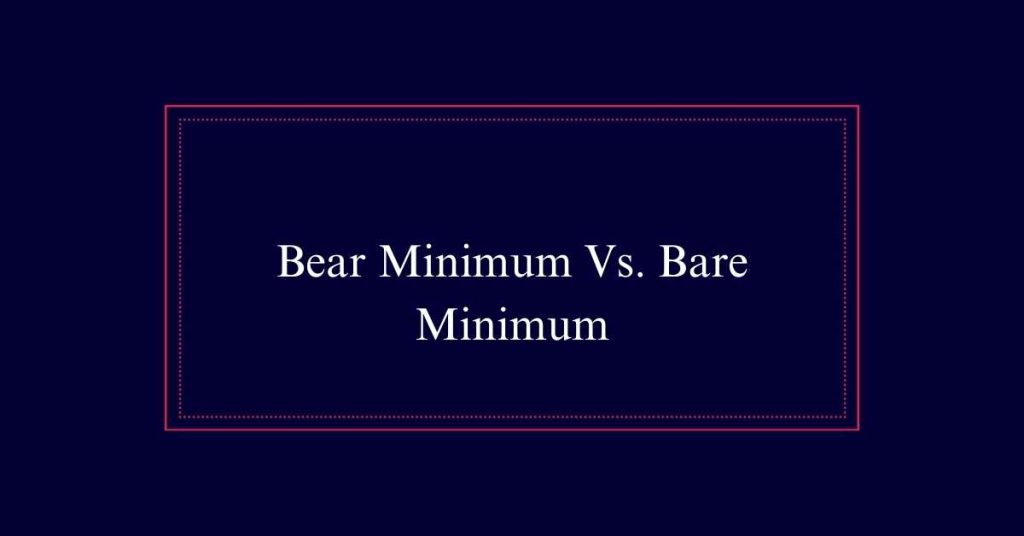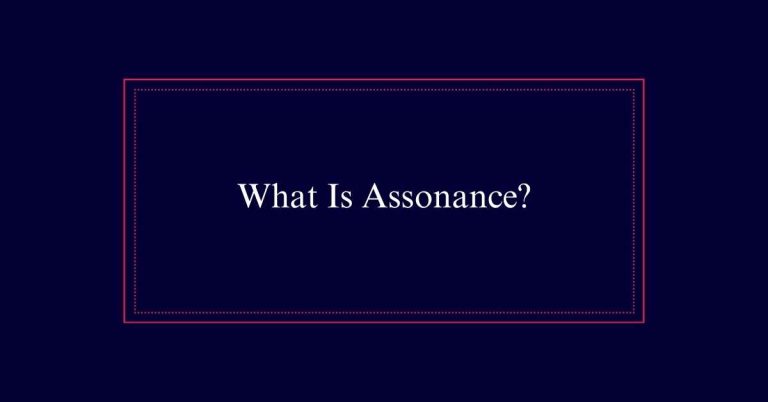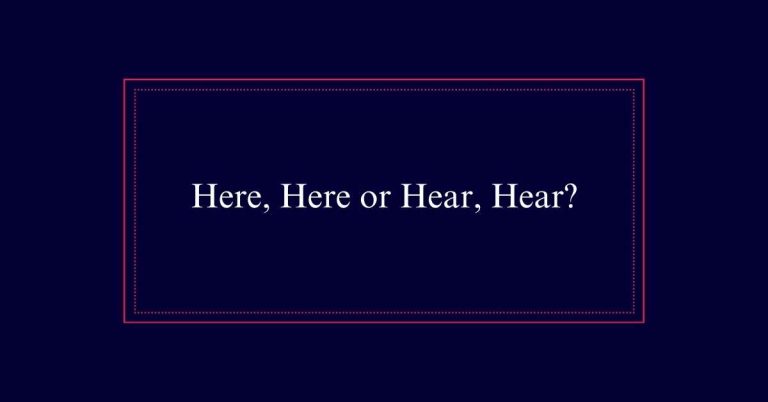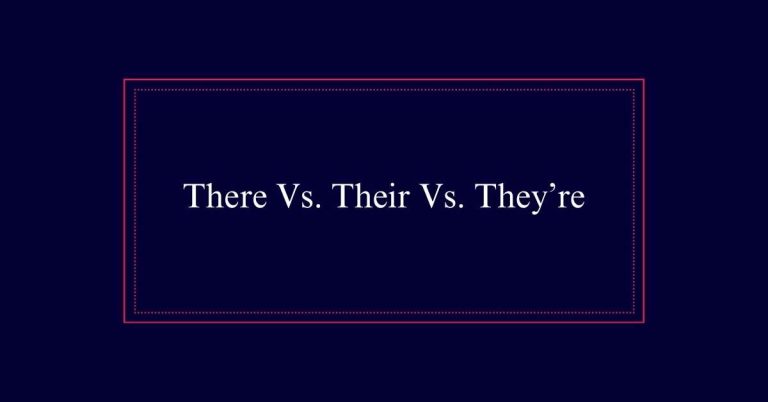Bear Minimum Vs. Bare Minimum
The term ‘bare minimum’ means achieving a goal with the least amount of effort or resources necessary. It’s commonly used in settings like business and education. However, people often incorrectly spell it as ‘bear minimum’ due to phonetic similarity. ‘Bear’ pertains to the animal or carrying something, while ‘bare’ means minimal.
Defining ‘Bare Minimum’
The term ‘bare minimum’ refers to the absolutely vital level of effort or resources required to achieve a specific goal or meet a standard. It implies doing only what is strictly necessary, without any extra effort or embellishment.
For instance, performing the bare minimum in a job might mean completing only the essential tasks to avoid consequences. This concept is often used in discussions about efficiency, productivity, and standards.
Common Misspelling: ‘Bear Minimum’
Many people mistakenly write ‘bear minimum’ due to the phonetic similarity between ‘bear’ and ‘bare.’ This common error arises because both words sound alike when spoken.
However, ‘bear minimum’ is not of utmost importance. The correct term is ‘bare minimum,’ which means the least amount necessary.
Spell checkers may not catch this mistake since ‘bear’ is a valid word. Recognizing this error is important for clear and accurate communication.
Origins of ‘Bare Minimum’
Originating from the concept of having the least amount necessary, ‘bare minimum’ emphasizes meeting only the most basic requirements. The term traces its roots to the idea of minimalism, where only essential elements are considered.

This concept has long been used in various fields, including business and education, to stress the importance of doing just enough to meet set standards. The phrase captures the essence of efficiency and resourcefulness, encouraging individuals to focus on core tasks without any extra effort. Understanding its origin helps us appreciate the significance of prioritizing essential tasks.
Phonetic Similarity Issue
Due to phonetic similarity, ‘bear’ and ‘bare’ are often confused in writing. This confusion arises because both words sound identical but have different meanings and spellings.
‘Bear’ typically refers to the animal or means to carry, while ‘bare’ means minimal or exposed. The similarity in pronunciation can lead to misuse, especially in phrases like ‘bare minimum,’ which is often incorrectly written as ‘bear minimum.’
This mistake can go unnoticed since ‘bear’ is an important word and spell checkers may not flag it.
Writing Accuracy Tips
Ensuring writing accuracy involves several practical strategies to avoid common errors like confusing ‘bear’ and ‘bare.’ One effective approach is to focus on continuous improvement through practice and feedback.
Here are some tips to enhance writing accuracy:
- Proofread Carefully: Always review your text to catch and correct errors.
- Use Reliable Resources: Consult dictionaries and grammar guides to verify word usage.
- Practice Regularly: Write frequently to become more familiar with correct spellings and meanings.
- Employ Tools: Utilize spell checkers and grammar software to assist in identifying mistakes.
Grammar and Spelling Importance
Proper grammar and spelling are indispensable for effective communication and professionalism in writing. They guarantee that the message is clear and understood as intended. Incorrect grammar and spelling can lead to misunderstandings and diminish the credibility of the text.
For instance, using ‘bear minimum’ instead of ‘bare minimum’ can confuse readers and make the writing appear careless. Consistent use of correct grammar and spelling demonstrates attention to detail and respect for the reader. It also reflects well on the writer’s competence.
Avoiding Common Errors
Many writers struggle with avoiding common errors like confusing ‘bear minimum’ with ‘bare minimum.’
To guarantee clarity and accuracy, consider these tips:
- Understand the Difference: Know that ‘bare minimum’ means the least amount needed, while ‘bear minimum’ is incorrect.
- Use Spell Check Wisely: Spell checkers might not catch ‘bear minimum’ since ‘bear’ is a real word. Always double-check.
- Practice Correct Usage: Write sentences using ‘bare minimum’ to reinforce the correct term in your memory.
- Consult Reliable Resources: Refer to grammar guides or trusted online resources to confirm the correct usage of common phrases.
Homophones in English
Homophones are words that sound alike but have different meanings and spellings. They often cause confusion in writing and speaking. For example, ‘bare’ and ‘bear’ are homophones, yet they convey distinct ideas. Understanding homophones is essential for clear communication. Here are some common homophones:
- Their, There, They’re: ‘Their’ shows possession, ‘there’ refers to a place, and ‘they’re’ is a contraction of ‘they are.’
- To, Too, Two: ‘To’ is a preposition, ‘too’ means also, and ‘two’ is a number.
- Peace, Piece: ‘Peace’ means tranquility, while ‘piece’ refers to a part of something.
- Here, Hear: ‘Here’ indicates a location, and ‘hear’ means to listen.
Reinforcing Correct Usage
Developing strategies to reinforce correct usage of ‘bare minimum’ over ‘bear minimum’ is essential for maintaining writing accuracy. One effective method is to practice and familiarize oneself with the correct term through regular exercises and contextual usage. Utilizing grammar resources can help clarify doubts about word usage. Additionally, proofreading tools can aid in spotting and correcting such errors.
Here is a comparison table to help remember the correct usage:
| Aspect | Bear Minimum | Bare Minimum |
|---|---|---|
| Meaning | Incorrect usage | Lowest possible requirement |
| Example Sentence | *Incorrect: He met the bear minimum.* | *Correct: He met the bare minimum.* |
| Common Confusion | Due to phonetic similarity | None |
| Correct Context | Not applicable | Writing, goal-setting, evaluations |






